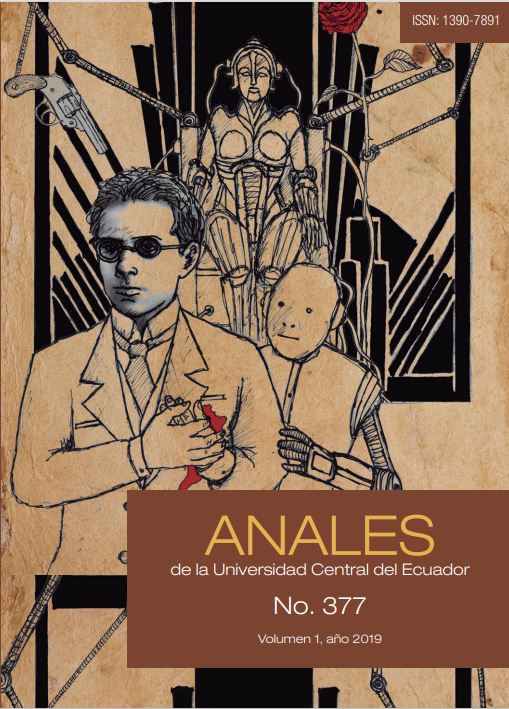El amor y la divergencia en Gabriel(a), de Raúl Vallejo
Keywords:
Ecuador, novel, trans, bodies, transgender, justice, identityAbstract
Th e paper proposes a reading of the novel Gabriel (a) Raul Vallejo key gender. In this sense reading two itineraries linked to the body articulate a trans woman and her identity: the romantic love story between the characters and the divergence of the romanticized tale with the binary logic of opposites. Th e senses of homosexuality intersect with the new urban pastoral transgender with the paradoxes of the “vice” of the character of Octavio Ramirez, embattled early twentieth century, the story of Pablo Palacio, Un hombre muerto a puntapiés (1927). Unlike Palacio, Vallejo radicalizes the victim activism, rebellion speeches and modes of anger in a fi lm guardarropía. Gabriela is dressed in a yellow onesie like Uma Th urman in Kill Bill. Vallejo appropriates the hyperbolic modes Quentin Tarantino’s revenge upon to represent the dreams of justice in a trans journalist who does not want to or hairstylist or bitch. Gabriela is in love with Miguel, a bank clerk. Th e love story against the grain between gender and class becomes a romanticized story where the trans woman, always exposed to humiliation and violent blows of the male becomes a heroine class; journalism and articulate chronic back from the confi guration of intellectual solidarity in the lettered city.
References
Benjamin, Walter. (2008). El narrador. Santiago de Chile: Metales pesados.
Cornejo Polar, Antonio. (1982). Sobre literatura y crítica latinoamericana. Caracas:
Facultad de Humanidades y Educación, Universidad Central de Venezuela.
(1994). Escribir en el aire. Ensayo sobre la heterogeneidad socio-cultural en las
literaturas andinas. Lima: Horizonte.
González Echevarría, Roberto. (2011). Mito y archivo. Una teoría de la narrativa
latinoamericana (22.a edición). México: Fondo de Cultura Económica.
Ludmer, Josefi na. (1977). Los procesos de construcción del relato. Buenos Aires: Sudamericana.
(1993). “El delito: fi cciones de exclusión y sueños de justicia”. Revista de Crítica Literaria Latinoamericana 19 (38), 145-153.
Rama, Ángel. (1984). La ciudad letrada. Hanover: Ediciones del Norte.
Segato, Rita. (2018). Contra-pedagogías de la crueldad. Buenos Aires: Prometeo
Sommer, Doris (2004). Ficciones fundacionales. Bogotá: Fondo de Cultura Económica.


